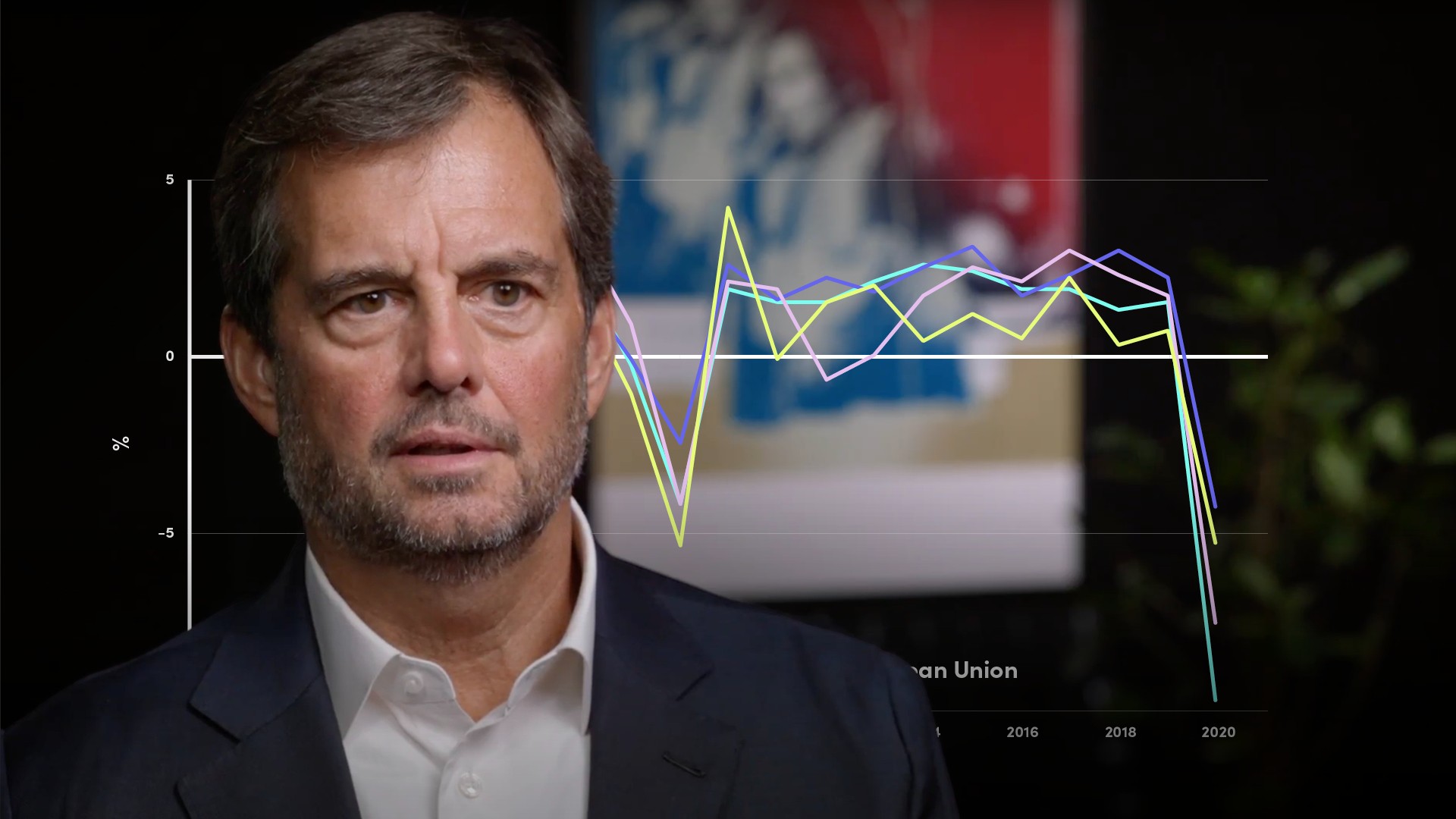
Government Surplus and Deficits

Tim Hall
30 years: Debt capital markets
Fiscal Policy is one of the main policy tools used by governments to try to smooth, albeit not entirely eliminate, business cycles. In the last video of his series on "Fiscal Policy", Tim explains us the effects of fiscal policies on deficits, the evolution of government debt. Further, he highlights the importance of coordination of Fiscal, Monetary and Regulatory Policies.
Fiscal Policy is one of the main policy tools used by governments to try to smooth, albeit not entirely eliminate, business cycles. In the last video of his series on "Fiscal Policy", Tim explains us the effects of fiscal policies on deficits, the evolution of government debt. Further, he highlights the importance of coordination of Fiscal, Monetary and Regulatory Policies.

Government Surplus and Deficits
15 mins 45 secs
Key learning objectives:
Explain how discretionary fiscal policy affects deficits and national debt
Understand how deficits and national debt have changed in the recent past in the US and UK.
Identify how the coordination of monetary, fiscal and regulatory policy affects the potency of government and central bank countercyclical policies.
Overview:
As you have learned from viewing the first three videos about fiscal policy, governments can deploy discretionary fiscal policy to influence economic cycles, with the objective being full employment and low inflation. However, expansionary fiscal policy often comes at a cost in the form of a higher annual deficit and – consequently – higher national debt.
What is a deficit and a surplus?
When a government spends more than it collects in tax revenues in a given year, it runs a deficit. When a government collects more than it spends, it runs a surplus.
How do deficits affect national debt?
Deficits add to the national debt, and surpluses reduce the national debt. As you might surmise, it is customary for governments to run deficits during recessionary periods, a form of automatic stabiliser. Still, governments and central banks often deploy expansionary fiscal and monetary policies, respectively, during a recession to ensure that the recovery is rapid and that the downturn is as shallow as possible.
How do most countries manage deficits and national debt?
Most developed countries run annual deficits irrespective of the performance of their economy, adding to the outstanding government debt each year. Countries finance their national debt mainly in the international capital markets by issuing bonds. Investors generally gauge the fiscal quality of a country not by its absolute debt, but by the relationship between the size of an economy and its overall debt.
What is “crowding out”?
If investors become concerned about a country’s level of debt, they can demand higher yields on the country’s debt to reflect the perceived greater risk. Of course, the yields on national debt serve as the basis for all commercial lending in a given economy, so higher government yields mean that the cost of domestic borrowing for consumers and businesses will also increase. When this happens, marginal business investment gets deferred because certain projects are no longer viable due to higher financing costs. Similarly, consumers generally borrow less because it’s more expensive, choosing instead to save money because they will be able to earn more on their savings. When this occurs, the government is effectively “crowding out” some of the borrowing capacity that would otherwise be used by the private sector, meaning consumers borrow less to finance consumption and businesses borrow less to finance investment.
How has the COVID-19 pandemic affected deficits and debt in the US and UK?
In short, both the US and UK have unleashed massive amounts of fiscal stimulus alongside unconventional monetary policy stimulus, to manage their economies through the severe economic damage caused by the pandemic. The fiscal stimulus during the pandemic has dramatically increased the annual deficit and the overall debt in both countries. In the US, which has the largest amount of debt in the world ($26.9 trillion at 30th September 2020), the debt-to-GDP has increased to 127%, from 107% the year before. In the UK, debt of £2.07 trillion at 30th June 2020 has meant that the ratio of debt-to-GDP ratio has increased to 103.5%, from 80.7% in the year prior to the pandemic. For perspective, the highest debt-to-GDP in the world amongst developed countries is Japan, which has a debt-to-GDP ratio of 259%.
Why is policy coordination necessary between the government and the central bank?
During deep or prolonged downturns, especially those caused by unexpected supply shocks, fiscal policy must be a component of a coordinated policy response alongside accommodative monetary policy and – at times - regulatory reforms, especially involving financial institutions. In countries where this is normally well coordinated, like the US and UK, the results of expansionary fiscal policy are strong and fast, helping to right an economy in distress. In countries that , for one reason or another, struggle to coordinate monetary and fiscal policy, or have unleashed expansionary policies but ignored reform (especially involving financial institutions), the full potency of the policy is not felt, and the results have generally been disappointing.

Tim Hall
There are no available Videos from "Tim Hall"

